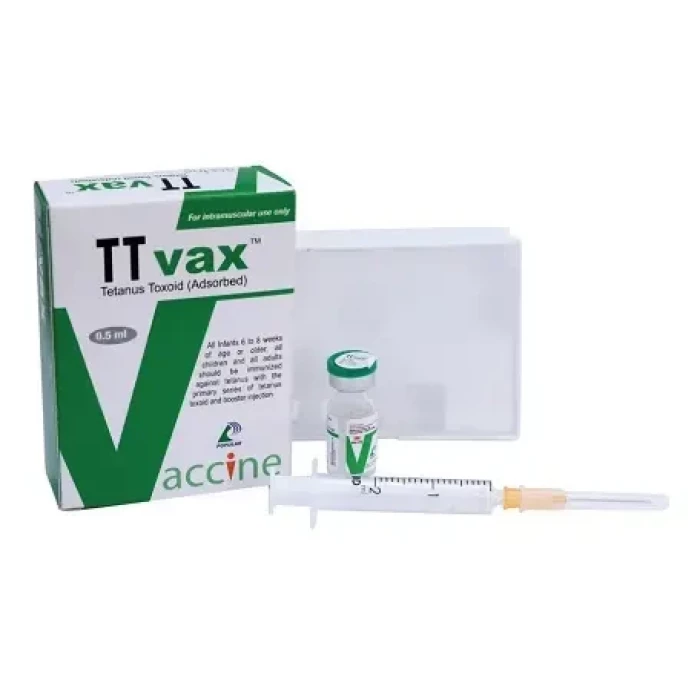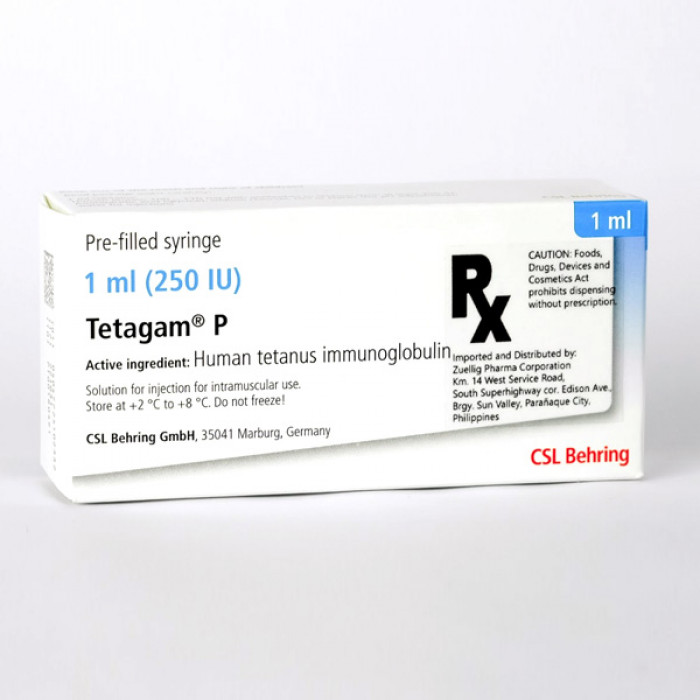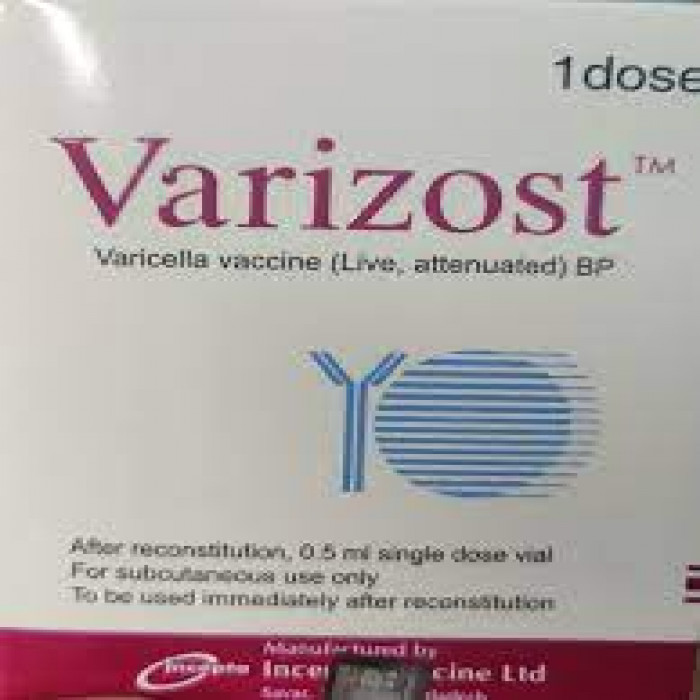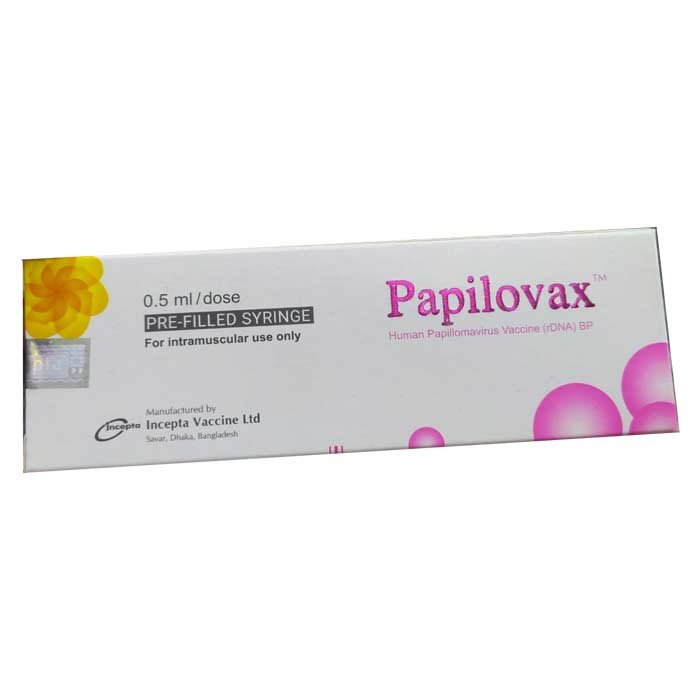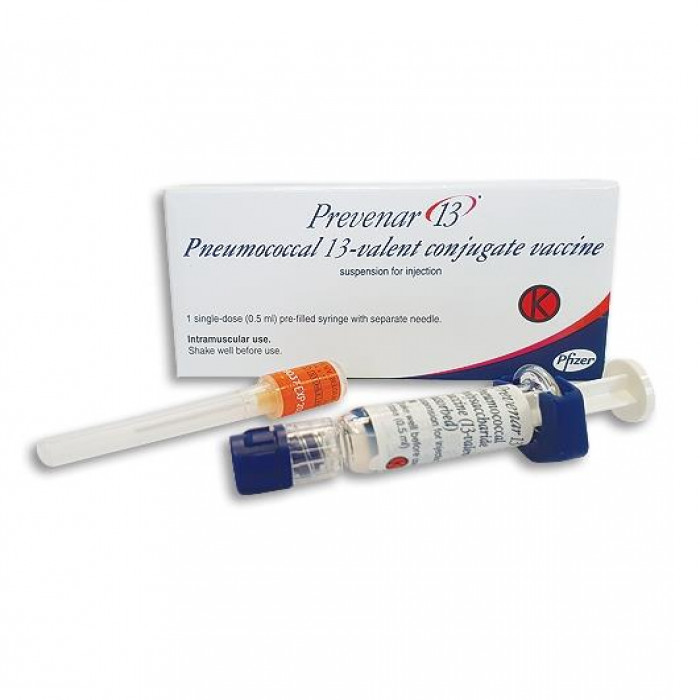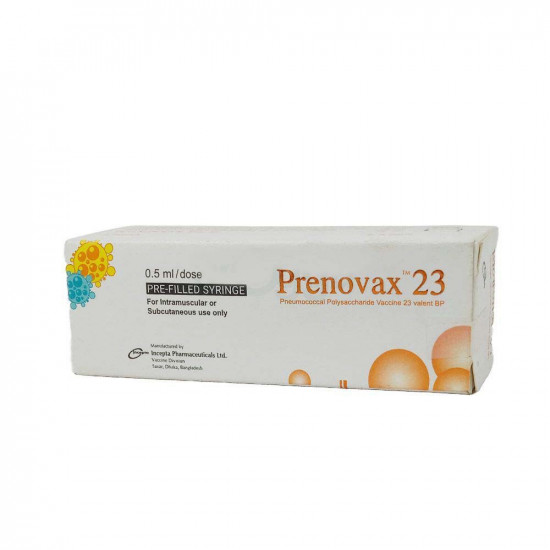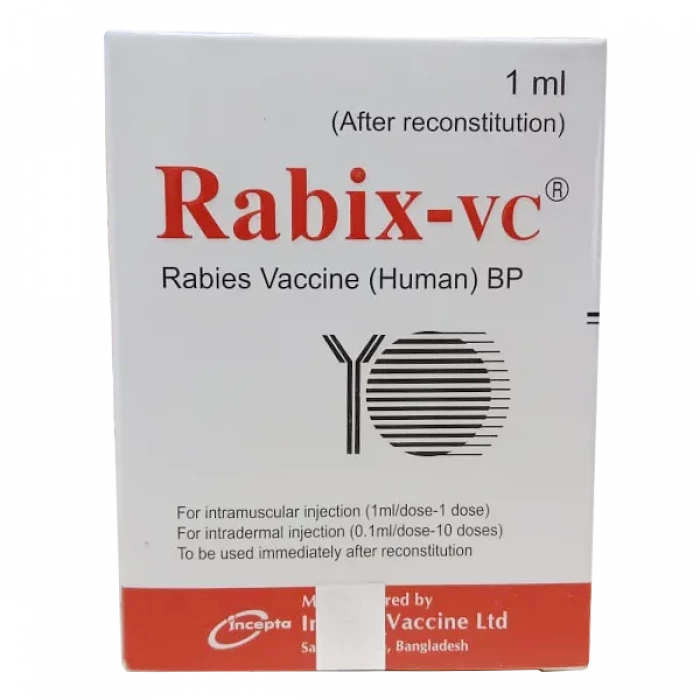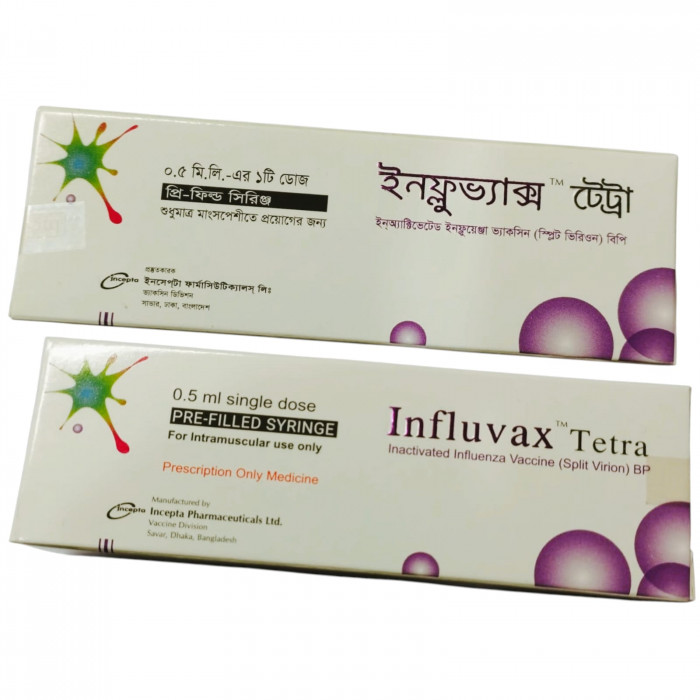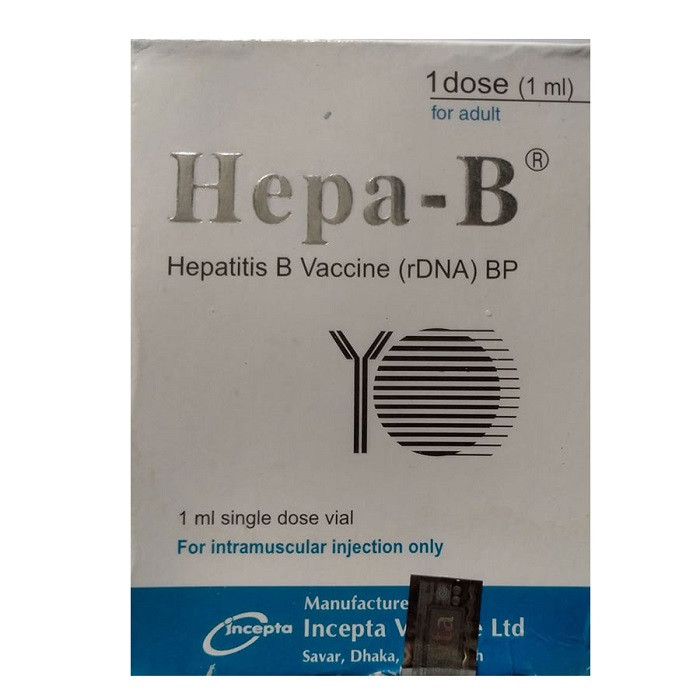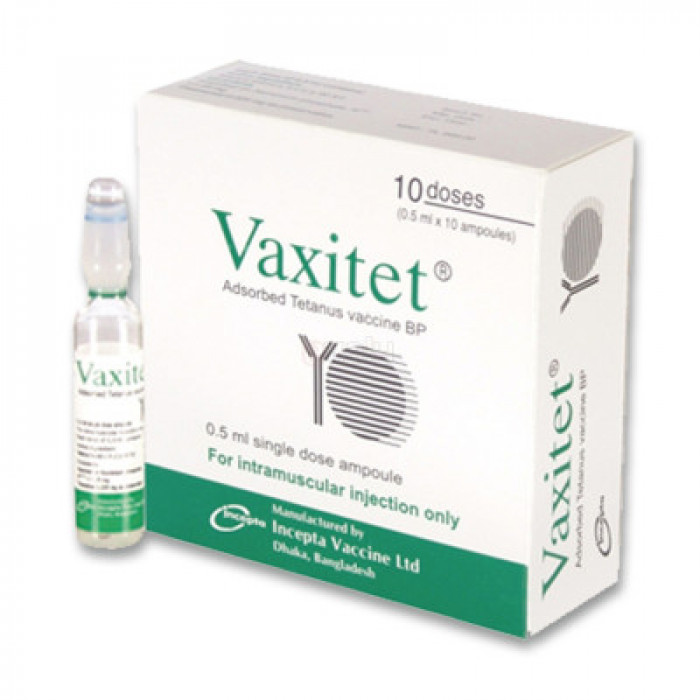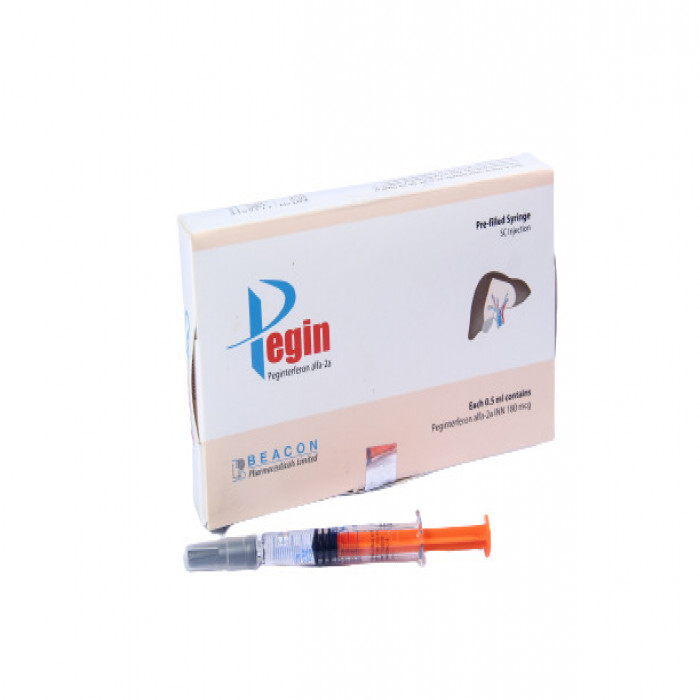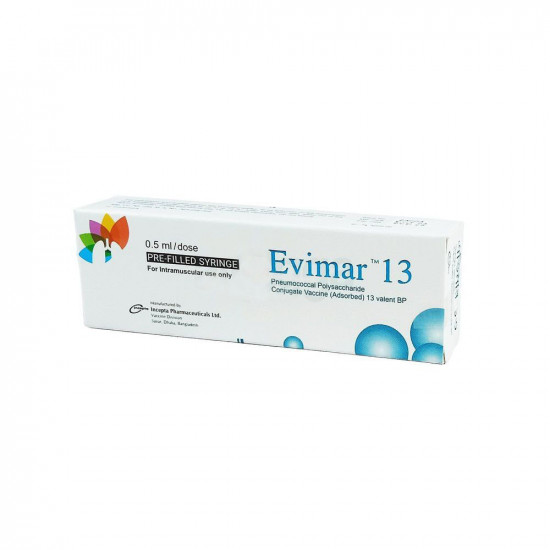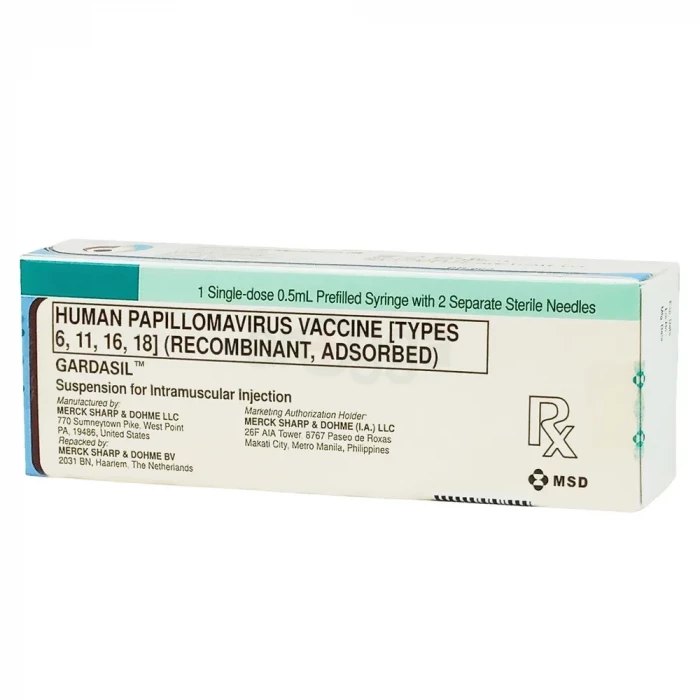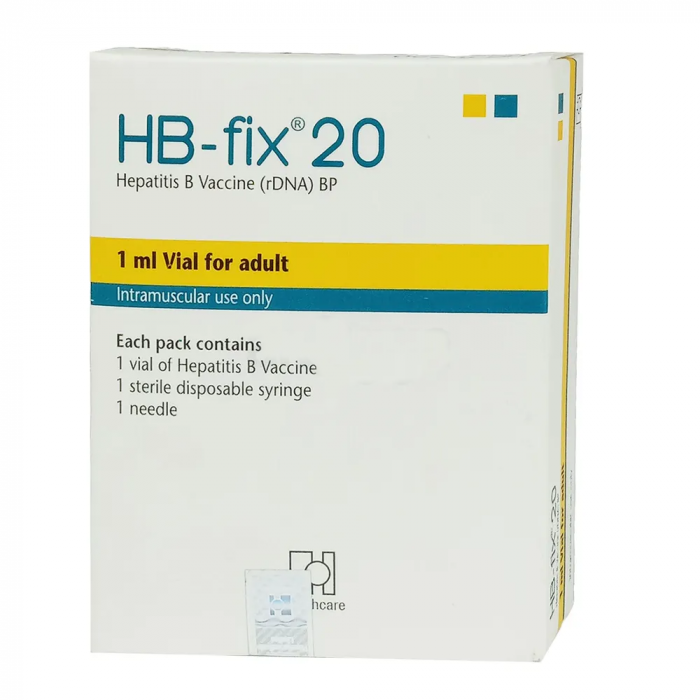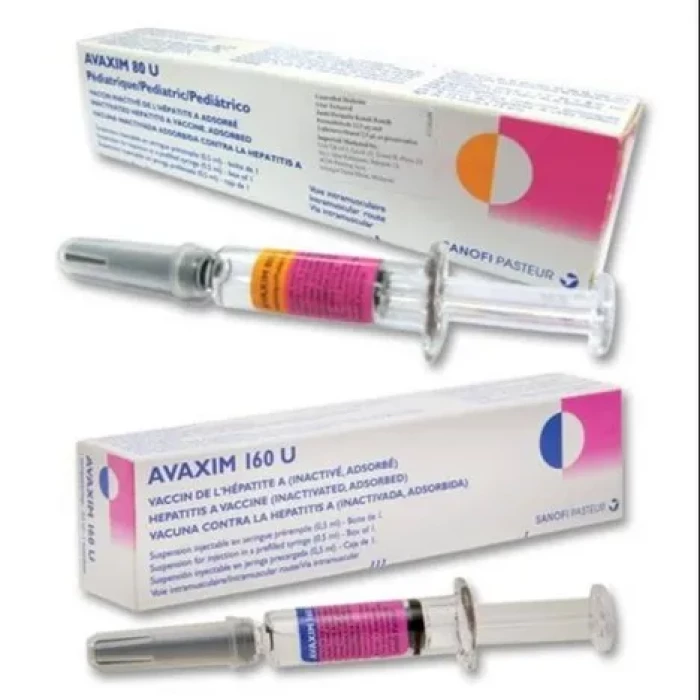Due to National Election, orders may be processed slight delay, nationwide.
Leading Online Pharmacy of Bangladesh
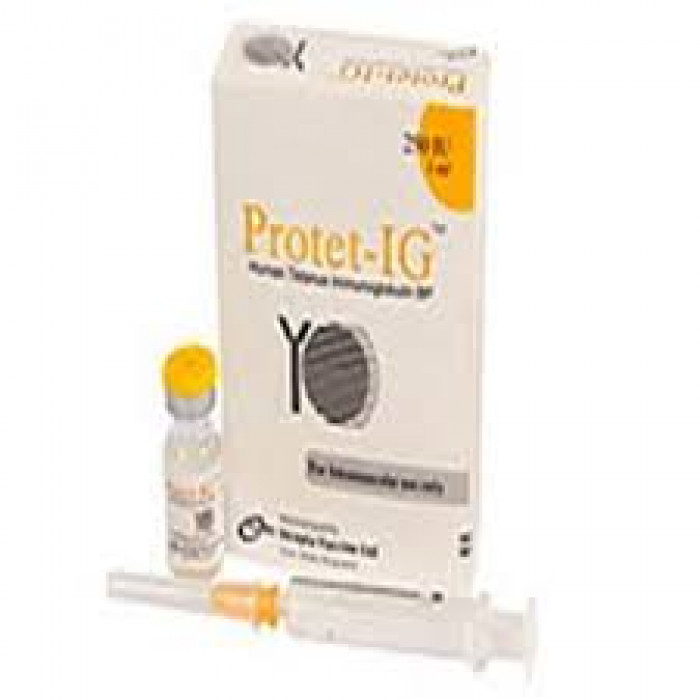
✔ 100% Authentic Product
👁️ Currently Viewing 4927
Protet-IG 250IU/ml Injection
Tetanus (Human Anti-tetanus) Immunoglobulin
- Prophylaxis of tetanus following injury in patients with incomplete or uncertain immunization.
- Treatment of tetanus (administered with active tetanus vaccination unless contraindicated or with confirmation of adequate vaccination).
Discount
Price: ৳ 936
MRP:
৳
975
4%
Off
✅ Description:
Protet-IG 250IU/ml Injection contains Tetanus Immunoglobulin, classified under Immunoglobulins.
- Preventive Use:
- Prevents tetanus infection in individuals at risk due to injuries.
- Suitable for those who haven't received tetanus vaccine in the last 10 years or are uncertain about their vaccination status.
- Therapeutic Use:
- Used in the treatment of active tetanus infection.
- Administered along with tetanus vaccine for enhanced effectiveness.
- Tetanus, caused by Clostridium tetani bacteria, results in severe muscle spasms, particularly in the jaw and neck.
- Tetanus immunoglobulin contains antibodies derived from screened donors, preventing the bacteria from affecting the nervous system and alleviating associated symptoms.
Avoid Protet-IG 250IU/ml Injection if allergic to tetanus immunoglobulin or other immunoglobulins. Inform your doctor if you are severely dehydrated, have diabetes, high blood pressure, blood clots, recent vaccinations, or upcoming vaccination schedules. Safe for use in children under physician guidance.
Safety Advices

Alcohol
UNSAFE
Avoid consumption of alcohol while receiving Protet-IG 250IU/ml Injection.

Pregnancy
CONSULT YOUR DOCTOR
Protet-IG 250IU/ml Injection should be used with caution in pregnant women. Therefore, consult your doctor before receiving it.

Breastfeeding
CONSULT YOUR DOCTOR
Protet-IG 250IU/ml Injection should be used with caution in breastfeeding women. Therefore, consult your doctor before receiving it.

Driving
CAUTION
Protet-IG 250IU/ml Injection is unlikely to affect your ability to drive or operate heavy tools or machines.

Kidney
SAFE IF PRESCRIBED
Protet-IG 250IU/ml Injection is probably safe to use in patients with kidney disease. Limited data available suggests that dose adjustment of Protet-IG 250IU/ml Injection may not be needed in these patients. Please consult your doctor.

Liver
SAFE IF PRESCRIBED
Protet-IG 250IU/ml Injection is probably safe to use in patients with liver disease. Limited data available suggests that dose adjustment of Protet-IG 250IU/ml Injection may not be needed in these patients. Please consult your doctor.
✔️ Uses of Protet-IG 250IU/ml Injection
- Treats and prevents Tetanus Infection
✔️ How does Protet-IG 250IU/ml Injection work?
It stimulates the body's immune system to produce an
✔️ Side Effects of Protet-IG 250IU/ml Injection
- Injection site reactions: Pain, soreness, tenderness.
- Increased temperature, angioneurotic edema, nephrotic syndrome, anaphylactic shock.
✔️ Quick Suggestions:
- Caution in patients with coagulation disorders or thrombocytopenia.
- Not for IV administration.
- Use with caution during pregnancy and lactation.
- If adsorbed tetanus vaccine is used concurrently, administered with separate syringes and into different injection sites with separate lymphatic drainage.
- Observe patients for at least 20 minutes after administration.
✔️ Indication of Protet-IG 250IU/ml Injection
- Prophylaxis of post-traumatic tetanus in patients with insufficient or uncertain immunity.
- Therapy in the treatment of tetanus.
- To be used with active tetanus toxoid vaccination unless contraindicated or full vaccination is confirmed.
✔️ Pharmacology
- Prevents tetanus toxin from damaging tissue and producing tetanus symptoms.
- Binds to tetanus toxin, interfering with its normal interaction with human tissues.
- Prevents toxins from entering the nervous system, preventing painful muscle spasms and autonomic dysfunction.
- Clostridium tetani is destroyed by antibiotic treatment, and immunoglobulin disrupts the immunoglobulin-binding toxin.
✔️ Dosage & Administration of Protet-IG 250IU/ml Injection
Adult Dose:
- Post-exposure prophylaxis of tetanus: Single dose of 250 IU; may increase to 500 IU in specific cases.
- Therapy of clinically manifest tetanus: Single doses of 3,000 to 6,000 IU (combined with appropriate clinical procedures).
Child Dose:
- Post-exposure prophylaxis of tetanus: Single dose of 250 IU; may increase to 500 IU in specific cases.
- Therapy of clinically manifest tetanus: Single doses of 3,000 to 6,000 IU (combined with appropriate clinical procedures).
Administration:
- Intramuscular injection only; avoid intravenous administration.
- Use at body temperature; do not use cloudy or sedimentary solutions.
- Administer in divided doses at different sites if a relatively large total volume is required.
- Co-administration with vaccines may alter vaccine efficacy.
✔️ Interaction
Drug Interactions:
- Certain medicines may interact with tetanus immune globulin.
- Inform your doctor about all medicines you are taking, including vaccines.
- Interactions may increase the risk of side effects.
Other Interactions:
- Discuss with your healthcare professional the use of this medicine with food, alcohol, or tobacco.
✔️ Contraindications
- Hypersensitivity to any component of the product.
- Known hypersensitivity to human immunoglobulin.
- Not recommended in patients with bleeding disorders or a history of immunoglobulin A (IgA) deficiency.
✔️ Pregnancy & Lactation
Safety during pregnancy is not established; long-term clinical experience suggests no harmful effects.
✔️ Precautions & Warnings
- Intravenous administration is not recommended.
- Use separate sterile syringes for each patient to avoid disease transmission.
- Caution in people with systemic allergy to immunoglobulins; have epinephrine available.
- Administer cautiously in severe thrombocytopenia or coagulopathy contraindicated for intramuscular administration.
- Withdraw the syringe plunger before injection to ensure the needle is not lodged in a blood vessel.
- Prepared from pasteurized plasma to reduce viral infection risk, but some risks remain.
✔️ Storage Conditions
- Store between +2°C and +8°C; do not freeze.
- Discard if frozen; avoid light.
⚠️Disclaimer:
At ePharma, we’re committed to providing accurate and accessible health information. However, all content is intended for informational purposes only and should not replace medical advice from a qualified physician. Please consult your healthcare provider for personalized guidance. We aim to support, not substitute, the doctor-patient relationship.




